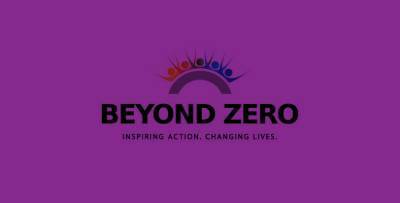SPEECH BY H.E. MARGARET KENYATTA THE FIRST LADY OF THE REPUBLIC OF KENYA DURING THE OFFICIAL OPENING OF THE CAMPAIGN ON ACCELERATED REDUCTION OF MATERNAL MORTALITY IN AFRICA (CARMMA) WEEK COMMEMORATION ON 19TH NOVEMBER, 2015 AT HOTEL INTERCONTINENTAL, NAIROBI.
Distinguished guests,
Ladies and gentlemen,
It gives me great pleasure to be part of this very important continental commemoration of the Campaign on Accelerated Reduction of Maternal Mortality in Africa. As we say to visitors, Karibuni Sana.
It is gratifying to note that so far 45 states have launched CARMMA and undertaken targeted actions to deliver on commitments.
The launch of CARMMA in Kenya, in November 2010, marked the commencement of a determined and sustained effort to address the unacceptably high maternal and child morbidity and mortality.
According to the African Union Policy brief of 2014 on Maternal, Newborn and Child Health (MNCH) in Africa, 17 countries reduced their maternal mortality ratios by 50 per cent or more between 1990 and 2010. Equatorial Guinea, Eritrea, and Egypt reduced maternal mortality by more than 70 per cent.
In addition 14 countries reduced their under-5 mortality rates by over 50 per cent from 1990 to 2011. Egypt and Liberia cut child mortality by 65 per cent while Rwanda is doing very well at above 75 per cent.
Approximately 30 countries have achieved faster reductions in both maternal and child mortality since the year 2000 than in the previous decade.
This is good news for mothers and children in Africa. But it is not enough. We are not yet there. More needs to be done. We must, therefore, prioritize maternal and newborn survival and mobilize resources at all levels.
Ladies and Gentlemen,
In Kenya, the 2014 demographic survey revealed significant improvement in maternal and child health indicators. Kenya has made significant strides towards getting to the 147 target of maternal deaths per 100,000 live births upon the pending conclusion of the Millennium Development Goals (MDGs) and onset of Sustainable Development Goals (SDGs).
Currently the Government of Kenya is providing free maternity services, free treatment of children under five and has scaled up immunization coverage. There is a deliberate effort to strengthen the health systems, including improving infrastructure and enhancing the capacity of healthcare providers to deal effectively with maternal, neonatal and child survival at all levels.
To support the government in accelerating its attainment of all maternal and child health targets including HIV prevention, treatment and care goals, I initiated the Beyond Zero campaign in December 2013.
The campaign was inspired by the realization that maternal and children’s deaths are largely preventable.
In this regard, I have had the opportunity to mobilize support across sectors to promote maternal and child survival as well as influenced individual health seeking behaviors and practices. Through the campaign, we have delivered a mobile health facility to 34 counties out of the 47 in Kenya. The clinics have significantly boosted access to health services especially in hard to reach areas across the country.
Ladies and gentlemen,
I would like to recognize the role played by the Organisation of African First Ladies against HIV/AIDS (OAFLA) in amplifying voices towards a concerted effort of elimination of mother to child transmission of HIV.
Together with my peers, we are making a concerted effort to engage in maternal, neonatal and child health issues due to the number of women and children who are dying every day in our continent.
The huge loss of life occasioned by poor access to life saving healthcare should be a great concern to all men and women of good will. I believe that it is possible to make progress through strategic and coordinated efforts and working together. As we celebrate our progress we must also re-assess challenges and redouble our efforts in order to ensure that our collective aspirations become a reality.
As I conclude, I urge the countries that have not launched CARMMA to make efforts to do so as this initiative can enable us to move forward as a continent towards the attainment of the Maputo plan of action.
Investing in women’s and children’s health is vital for sustainable economic and social development. Healthy women and children contribute to healthy economies, political stability and shared prosperity.
It is now my singular honour to launch the Maternal, Neo-natal and Child Health Status & Mainstreaming Maternal Deaths Surveillance and response systems in Africa Reports.
I wish you fruitful deliberations, enjoyable stay and a safe journey back home.
Thank you.
